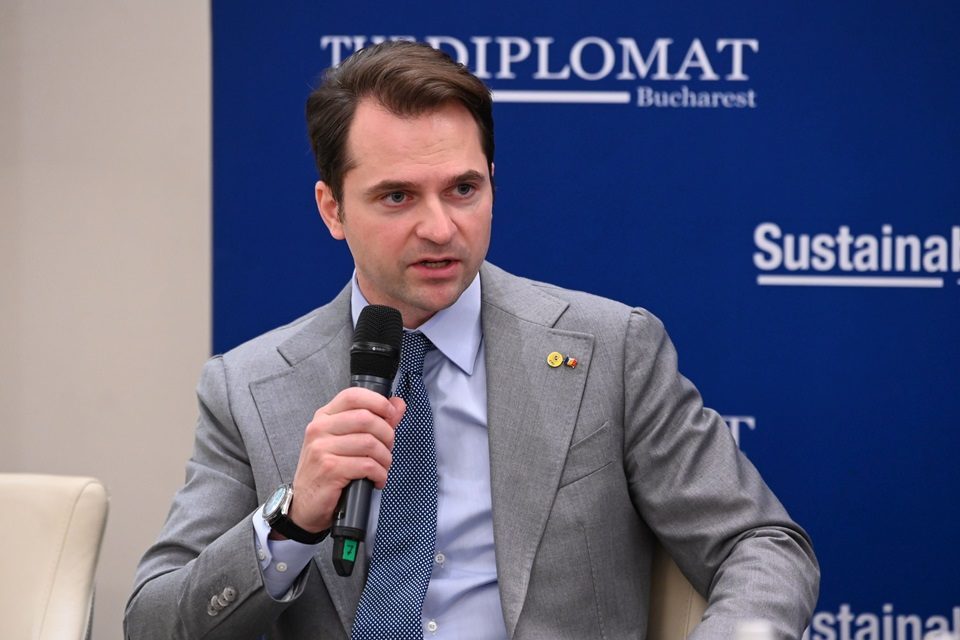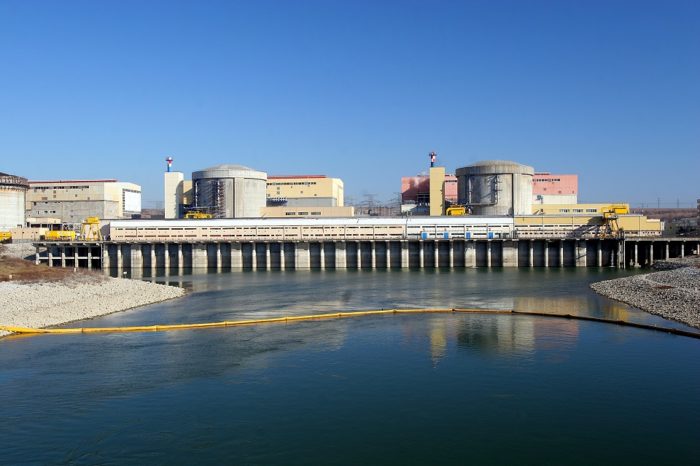Energy Minister Burduja: “The joint project company for the construction of the submarine electric cable between Romania and Georgia will be launched in 30 days”

“In the next 30 days, the joint project company for the development of the Green Corridor, based in Bucharest, will be launched. The investment will energetically connect the Caspian Sea with the European Union”, said the Minister of Energy, Sebastian Buduja, who represented Romania at the 9th Ministerial Meeting of the Green Corridor, the investment of billions supported by the Governments of the Republic of Azerbaijan, Georgia, Romania and Hungary.
The 4 countries aim to build a direct current high-voltage submarine cable crossing the Black Sea, connecting Hungary, Romania, Georgia and Azerbaijan.
Two months ago in Bucharest, CNTEE Transelectrica, Georgian State Electrosystem, AzerEnerji and MVM Electrical Works signed the incorporation documents of the project company Green Energy Corridor Power Company (GECO), based in Romania. The company will actually make the high voltage direct current submarine cable.
The project has an essential role in strengthening national and regional energy security, increasing connectivity in the Black Sea basin, diversifying supply routes, harnessing the potential of renewable energy and increasing its weight in the national energy mix, as well as reducing electricity prices for domestic consumers and for Romanian companies.
“There is no energy transition without energy transport infrastructure. We feel a deep lack of interconnection, the European energy market being decoupled. That is why we pay much higher prices in Eastern Europe compared to Western Europe. For Romania, the Green Corridor and the East-West Direct Current Interconnector are vital projects. Without these interconnections, we will not be able to evacuate the additional energy from reactors 3 and 4 at Cernavoda, nor from the wind power plants in the Black Sea, in the 2031–2032-time horizon. Furthermore, a direct current (HVDC) interconnection will be an additional lever at the disposal of the National Energy Dispatcher (DEN) to balance the system.
The establishment of the headquarters of the project company for the Green Corridor in Bucharest was a great diplomatic victory in recent months. Billions of euros will pass through the Romanian economy, and the investment will mean jobs, development and lower bills for Romanians. It is essential to quickly develop new energy transport and supply routes, not only to strengthen energy security, but also to increase market competitiveness through lower electricity prices,” said Sebastian Burduja, Minister of Energy.
The meeting took place as part of the 29th annual UN Climate Change Conference (COP29), which takes place from November 11-22, and is being hosted by Azerbaijan for the first time.














